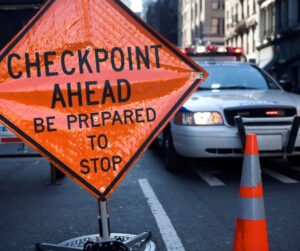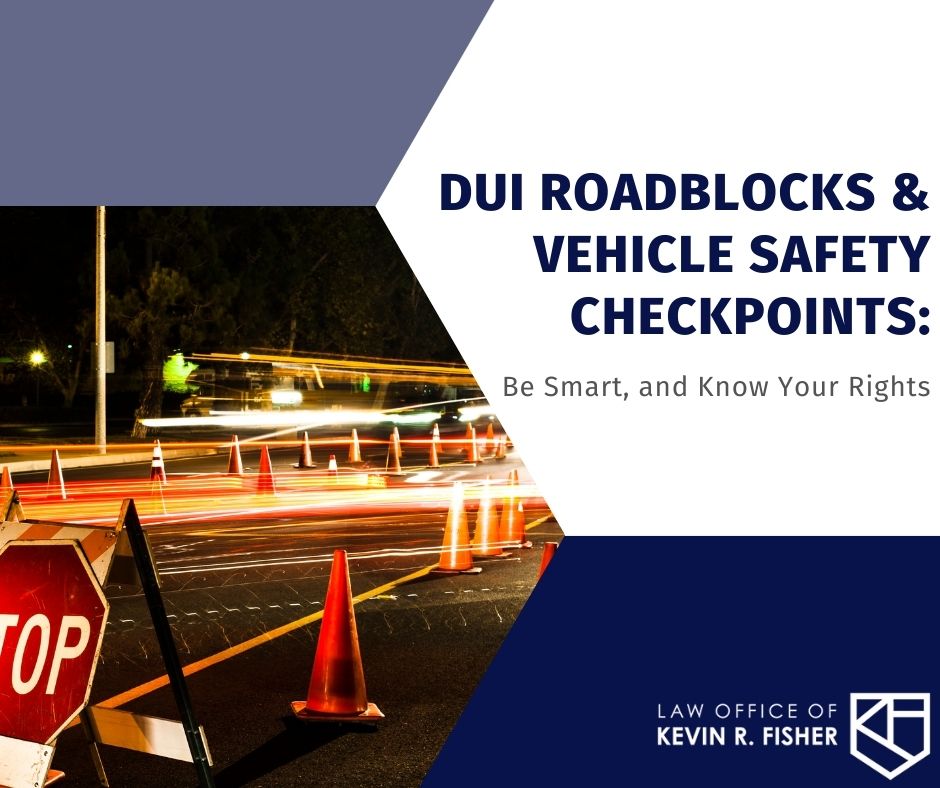In a vehicle safety checkpoint, the police block off the road and stop every driver. They will typically ask for the driver’s documentation and may ask some questions. This would seem to be an illegal seizure or search under the Fourth Amendment to the Constitution. The Fourth Amendment states:
The right of the people to be secure in their persons, houses, papers, and effects, against unreasonable searches and seizures, shall not be violated, and no Warrants shall issue, but upon probable cause, supported by Oath or affirmation, and particularly describing the place to be searched, and the persons or things to be seized.
Per the plain language of the Fourth Amendment, police cannot search an individual without probable cause and a warrant. If the police are stopping every driver, this violates the Fourth Amendment, right? Not according to both the U.S. Supreme Court and the Georgia Supreme Court, who have both upheld the constitutionality of vehicle checkpoints.
However, this does not mean that there are no limits on how and why police can initiate checkpoints or that the police can do whatever they want once they stop a person. There are rules they have to follow for the roadblock to be deemed constitutional. Suppose the police do not follow these rules. In that case, a motion to suppress any evidence obtained from the illegal roadblock will likely be successful, potentially resulting in the dismissal of the case. These rules are:
- The roadblock must be approved by a supervisor,
- Every driver must be stopped,
- The roadblock must be clearly marked as a police roadblock,
- The officer interacting with drivers must have sufficient experience and training to determine which drivers should be asked to complete Standardized Field Sobriety Testing, and
- The roadblock cannot be an “unreasonable burden” on drivers.
Furthermore, roadblocks must have a legitimate purpose to justify the intrusion. Legitimate purposes include:
- Seatbelt checks,
- Intercepting fleeing criminals,
- Checking for valid licenses, registration, and insurance,
- Equipment safety checks,
- Preventing imminent terrorist attacks,
- Detection and interception of undocumented immigrants, and (of course),
- Sobriety checkpoints.
The police cannot use roadblocks for generalized crime control purposes.
So now, on to the important part. What are my rights if I’m stopped at a DUI checkpoint?
1. You do not have to answer any questions. I typically recommend that my clients politely decline to answer any questions asked of them because the police can use your words and your manner of speaking against you. For example, the police routinely write in their DUI reports that a person was “belligerent” or if they had “slurred speech.”
“belligerent” or if they had “slurred speech.”
2. You are not required to participate in Standardized Field Sobriety Testing. Whether or not the police inform you that these tests are voluntary, you legally cannot be compelled to perform them. Most attorneys who practice DUI law will tell you that these tests are difficult to pass even for a person who is not under the influence, and that they were designed that way. It is generally safer to decline to take them (again, politely).
3. You should not consent to any searches of your vehicle. While the police can search your vehicle even without your consent in certain circumstances, it is much more difficult to challenge the legality of a search in court if you give the police your permission to search.
4. You can ask, “Am I free to leave?” If the police say “yes,” leave as quickly (but as safely) as possible. If they say that you are not free to leave, ask for your attorney. They may not comply immediately, but it’s a good idea to be on record asking for your lawyer.
5. Do not argue or become combative with the police. If you do, you may end up with additional charges (or worse). If you have concerns about your contact with the police, be sure to let your attorney know. It’s a good idea to write down everything you remember about your interaction, because memory fades more quickly than you might think.
Can I turn around to avoid a DUI checkpoint?
This is tricky because police are given a lot of leeway. In a routine traffic stop, an officer must point to facts that gave them “reasonable suspicion” to believe that a person was engaged in criminal activity – usually, the officer directly witnesses the offense (speeding, for example). In a roadblock case, though, so long as the officer can give a reason for believing in “good faith” that a driver was taking measures to avoid the checkpoint, courts will typically uphold the legality of the stop. Any abnormal or unusual behavior is usually sufficient, such as an abrupt turn. This reason must be more than a “hunch,” but this is still a very low bar.
What do I do if I’m arrested after being stopped at a DUI checkpoint?
Fighting an arrest that results from a roadblock or vehicle safety checkpoint is the job of a trained DUI Defense Attorney. If you were arrested at a roadblock, call me today.

